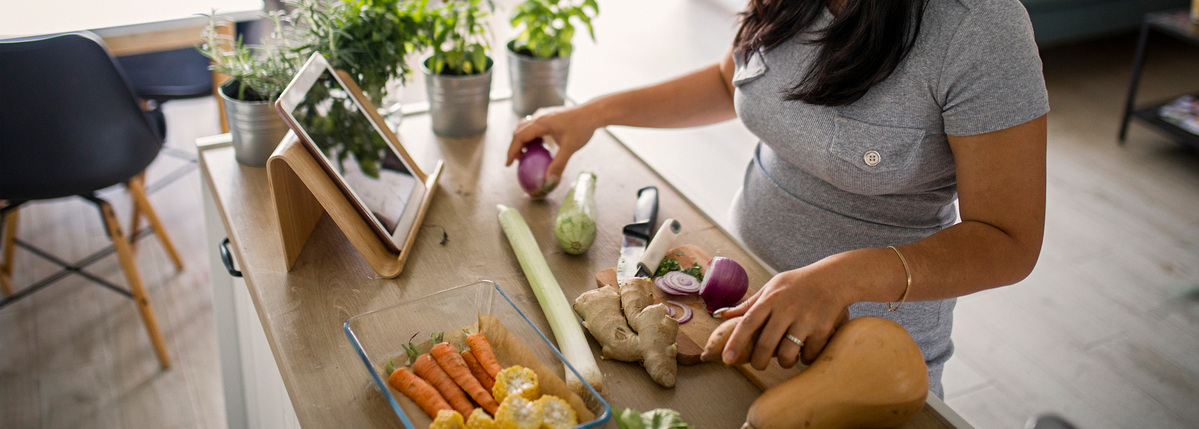Mental Health Q + A with Diabetes Psychologist Mark Heyman – Navigating the Holidays
Written by: Mark Heyman, PhD, CDE
4 minute read
December 6, 2018
Dr. Mark Heyman is a diabetes psychologist and a certified diabetes educator. founder and director of the Center for Diabetes and Mental Health (CDMH), he is passionate about understanding and supporting the ways diabetes impacts not just physical but mental health. Mark also lives with type 1 diabetes.
If you have type 1 diabetes or are caring for someone who does, it is likely that you or your loved one might experience any of the following: stress, diabetes distress, burnout, diabulimia and/or depression. We’re here to talk about it. If you have a question you’d like Mark to answer here, e-mail it to [email protected] with the subject line “Mental Health Q”!
Question: How do I deal with anxiety about traveling with type 1 diabetes (T1D) when I feel like so much can go wrong?
When you have type 1 diabetes, even thinking about going on a trip can bring up a lot of worry and concern. Even if you are going on a fun trip, sometimes thoughts about everything that could possibly go wrong can get in the way and make the trip even more stressful.
If you didn’t have any anxiety about traveling with T1D, I would be a little worried about you. The definition of anxiety is feeling worried or nervous about something with an uncertain outcome. If you didn’t have any anxiety about traveling with T1D, you might leave on your trip without packing your insulin or taking any emergency supplies. A little anxiety is what makes sure you do what’s needed to prepare for your trip (including non-diabetes things like making sure you leave for the airport on time). Double check your suitcase to make sure you have all the supplies you need, including some extra insulin in case of an emergency.
But what do you do if you think your anxiety is going to get in the way when you’re traveling, or you’re even thinking about cancelling your trip because you’re worried everything will go wrong? Here are some strategies that can help you manage your anxiety when traveling:
Prepare! We can all take a lesson from Santa and make a list and check it twice when traveling with diabetes. You want to make sure that you prepare for your trip and pack more diabetes supplies than you think you’ll need. Also, think about anything else that could happen on your trip that would require changes to your regular diabetes management. What will be different about what you’re going to eat or how much activity you’ll be doing everyday? This will help you make a plan so you can enjoy your trip.
Check your thoughts! When you’re anxious about something, your thoughts may sometimes take you to the worst case scenario, which makes anxiety even worse. It can help to take a step back and check your thoughts to see how realistic they are. You may find that the thoughts that are making you anxious are not completely realistic, which can help reduce your anxiety.
As a person with diabetes, you’ve already developed a lot of problem solving skills that you use on a daily basis. This are skills that will come in handy when you travel. Diabetes definitely can throw you some curve balls, however you’ll be able to handle them! Have confidence in your ability to manage challenges and you’ll do just fine.
Question: I get overwhelmed with questions about my diabetes from my extended family. It is all they want to talk about and makes me feel like they pity me. Is it ok if I don’t want to talk about it all the time? How can I tell my family this?
Yes, it’s absolutely okay if you don’t want to talk about diabetes all the time! I think most people with diabetes have been overwhelmed or annoyed at some point with questions about diabetes from friends and family. You want to talk about all the great things you’ve been doing and they only want to talk about diabetes.
Before you get too annoyed with your family and friends, keep in mind that they are probably asking because they care about you and they want to make sure that you are healthy. You may be the only person with diabetes that they know and they may not know much about diabetes besides what they’ve seen in the media, which isn’t always accurate. When someone asks you about diabetes, it can give you the opportunity to give them some real-life insight about what diabetes is and how it’s managed. You can show them that it’s possible to live well with diabetes.
What you share about your diabetes is completely up to you and if questions from your friends and family get to be too much, it’s totally fine to set some boundaries. If you’d prefer not to talk about diabetes at all, a little planning can go a long way. Come up with and practice what you want to say when someone asks you about diabetes. Make sure that what you say is firm, but polite. You may want to ask a trusted friend or family member for feedback on your plan in order to be sure that you’re clear in getting your message across. For example, when someone asks you about diabetes, your reply could be, “Thanks so much for asking, I’m doing really well. I really prefer not to talk about diabetes, so I’d appreciate if we could talk about something else right now.”
Sometimes people may offer you advice about what you should be doing to manage your diabetes. Most of the time when this happens, the person wants to help but has no idea how to be helpful. If you would like some help, don’t be shy about letting people know what would be helpful for you. You can say something like, “I don’t need advice on how to manage diabetes, I got that covered. If you would like to help, I would really appreciate it if you take a walk with me after dinner.” A lot of times, people really like it when you tell them what they can do to help. It makes them feel useful and may help cut down on the questions and unsolicited advice.
Another Q+A with Mark Heyman regarding blood sugar highs and lows can be found here.
Explore the full library of mental health resources for people impacted by type 1 diabetes here.

Author
Mark Heyman, PhD, CDE
Dr. Mark Heyman is a diabetes psychologist and a certified diabetes educator. He is vice president of Clinical Operations and Innovation at One Drop. He is also the founder and director of the Center for Diabetes and Mental Health (CDMH). He is passionate about providing diabetes education and evidence-based mental health treatment to people with diabetes. Mark received his PhD in Clinical Psychology from The George Washington University and completed his psychology internship at the UCSD School of Medicine. He holds an appointment as an assistant clinical professor in the Department of Psychiatry at UCSD. He has been living with type 1 diabetes since 1999. You can follow Mark on Twitter @DiabeticPsych and reach him by email at [email protected].
Related Resources

We’re inundated with messaging about “mindfulness” in our culture. Sometimes it seems to refer to...
Read more

There is no doubt that food plays a crucial part in overall type 2 diabetes...
Read more

The start of a new year inspires many of us to re-evaluate our lives—our goals,...
Read more

